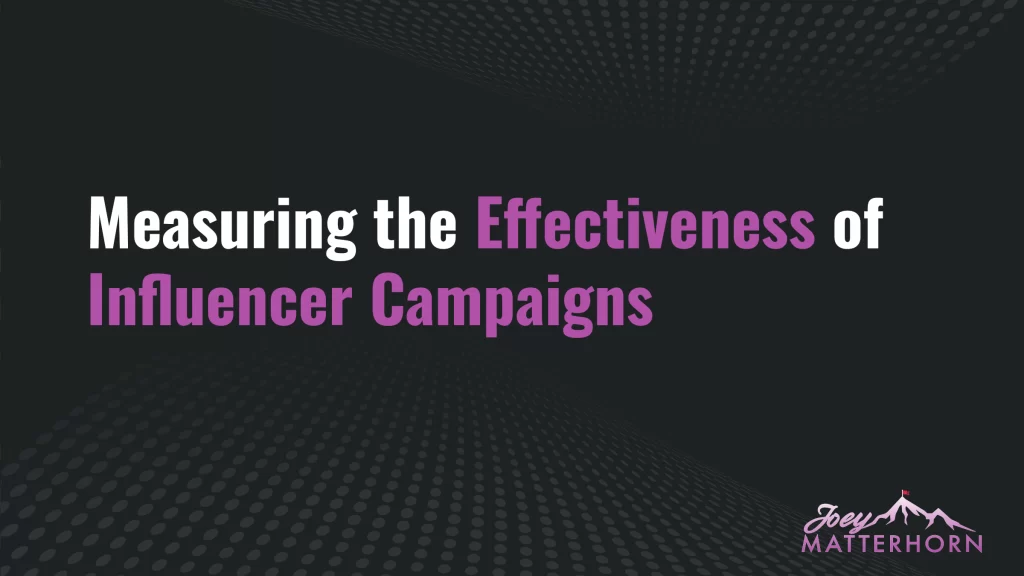Influencer partnerships have become a powerful marketing strategy for small businesses looking to expand their reach and engage with new audiences. Collaborating with influencers allows businesses to leverage the trust and credibility that influencers have built with their followers. In this guide, we’ll explore key strategies for small businesses to effectively collaborate with influencers and maximize the impact of their marketing efforts.
Identifying Suitable Influencers for Your Brand
The first step in creating a successful influencer partnership is to identify influencers who align with your brand values and target audience. Look for influencers whose content resonates with your brand’s message and aesthetics. Consider factors such as audience demographics, engagement rates, and content relevance when evaluating potential influencers.
Utilize influencer marketing platforms and social media listening tools to discover relevant influencers in your industry or niche. Pay attention to the type of content they create, the engagement they receive, and the authenticity of their interactions with their audience.

Negotiating Partnerships and Collaborations
Once you’ve identified suitable influencers, the next step is to negotiate partnerships and collaborations. Reach out to influencers with a clear proposal outlining the scope of the partnership, including deliverables, timelines, and compensation. Be transparent about your expectations and the benefits the influencer will receive in return.
Negotiate terms that are mutually beneficial for both parties, taking into account the influencer’s rates, the scope of work, and any additional perks or incentives you can offer. Establish clear communication channels and timelines to ensure a smooth collaboration process.
Creating Engaging Sponsored Content
Effective influencer partnerships hinge on the creation of engaging sponsored content that resonates with the influencer’s audience. Work closely with the influencer to develop creative ideas that align with both your brand message and the influencer’s style.
Encourage the influencer to create authentic and relatable content that showcases your product or service in a natural and organic way. Provide the influencer with the necessary resources and information to accurately represent your brand.

Measuring the Effectiveness of Influencer Campaigns
Measuring the effectiveness of influencer campaigns is essential for evaluating their impact and optimizing future collaborations. Track Key Performance Indicators (KPIs) such as reach, engagement, click-through rates, and conversion rates.
Utilize tracking links, promo codes, or custom landing pages to attribute traffic and sales to the influencer’s efforts. Analyze the data gathered to identify trends and insights that can inform future influencer partnerships.

Building Long-Term Relationships with Influencers
Building long-term relationships with influencers can lead to more authentic and impactful collaborations over time. Invest in nurturing relationships with influencers by providing ongoing support, feedback, and recognition for their work.
Stay engaged with influencers even when you’re not actively collaborating. Engage with their content, share their posts, and participate in conversations to show your continued support. By building a strong rapport with influencers, you can create lasting partnerships that benefit both your brand and the influencer’s audience.
In Conclusion
Influencer partnerships offer small businesses a unique opportunity to expand their reach and connect with new audiences. By identifying suitable influencers, negotiating partnerships, creating engaging content, measuring campaign effectiveness, and building long-term relationships, small businesses can leverage the power of influencer marketing to achieve their marketing goals. Remember, authenticity and collaboration are key to successful influencer partnerships that drive meaningful results for your brand.
What are influencer partnerships and why are they beneficial for small businesses?
Influencer partnerships are collaborations between businesses and influencers, who are individuals with a large and loyal following on social media or other online platforms. Influencer partnerships are beneficial for small businesses because they can help them reach new audiences, enhance their brand credibility, and drive traffic and sales.
How can I find suitable influencers for my brand?
To find suitable influencers for your brand, you need to consider factors such as your brand values, target audience, and content relevance. Look for influencers whose content resonates with your brand message and aesthetics, and who have a similar or complementary audience to yours. Use influencer marketing platforms and social media listening tools to discover relevant influencers in your industry or niche.
How can I negotiate partnerships and collaborations with influencers?
To negotiate partnerships and collaborations with influencers, you need to reach out to them with a clear proposal that outlines the scope of the partnership, including deliverables, timelines, and compensation. Be transparent about your expectations and the benefits the influencer will receive in return. Negotiate terms that are mutually beneficial for both parties, taking into account the influencer's rates, the scope of work, and any additional perks or incentives you can offer. Establish clear communication channels and timelines to ensure a smooth collaboration process.
How can I create engaging sponsored content with influencers?
To create engaging sponsored content with influencers, you need to work closely with them to develop creative ideas that align with both your brand message and the influencer's style. Encourage the influencer to create authentic and relatable content that showcases your product or service in a natural and organic way. Provide the influencer with the necessary resources and information to accurately represent your brand.
How can I measure the effectiveness of influencer campaigns and optimize them over time?
To measure the effectiveness of influencer campaigns, you need to track key performance indicators (KPIs) such as reach, engagement, click-through rates, and conversion rates. Use tracking links, promo codes, or custom landing pages to attribute traffic and sales to the influencer's efforts. Analyze the data gathered to identify trends and insights that can inform future influencer partnerships. To optimize your influencer campaigns over time, you need to regularly monitor and adjust your strategies based on the performance data. You also need to build long-term relationships with influencers by providing ongoing support, feedback, and recognition for their work.


